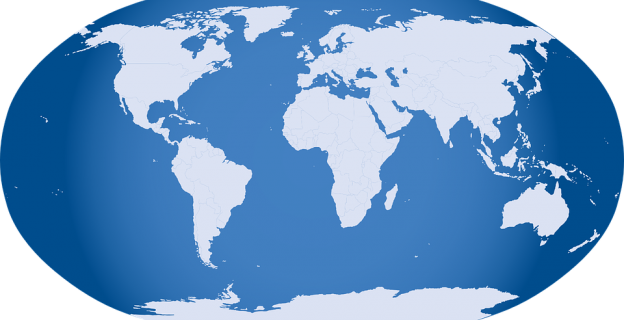From the U.S. State Department
United States Takes Action to Counter Iranian Support for al-Qa’ida
This week, Secretary Pompeo revealed new information about how the Islamic Republic of Iran has given a new operational headquarters to al-Qa’ida, the terrorist network with more American blood on its hands than any other. For al-Qa’ida, Iran is the new home base. Tehran gives sanctuary to the terror group’s senior leaders as they plan attacks against America and our allies. Indeed, since 2015, Tehran has allowed al-Qa’ida figures in the country to freely communicate with other al-Qa’ida members and perform many functions that were previously directed from Afghanistan and Pakistan, including authorization for attacks, propaganda, and fundraising.
In 2016, the U.S. Treasury Department identified and sanctioned three senior al-Qa’ida operatives residing in Iran and noted that Iran had knowingly permitted these al-Qa’ida members, including several of the 9/11 hijackers, to transit its territory on their way to Afghanistan for training and operational planning.
The Iran-al-Qa’ida axis poses a grave threat to the security of nations and to the American homeland itself, and we are taking action.
Today, I announced the designations of Iran-based al-Qa’ida leaders Muhammad Abbatay (also known as Abd al-Rahman al-Maghrebi), and Sultan Yusuf Hasan al-‘Arif as Specially Designated Global Terrorists under Executive Order (E.O.) 13224. Under the same authority, I also announced the designations of Isma’il Fu’ad Rasul Ahmed, Fuad Ahmad Nuri Ali al-Shakhan, and Niamat Hama Rahim Hama Sharif as leaders of the al-Qa’ida Kurdish Battalions (AQKB), an al-Qa’ida-linked group that operates on the border between Iran and Iraq. As a result of these designations, U.S. persons are generally prohibited from engaging in any transactions with these individuals and their property and interests in property subject to U.S. jurisdiction are blocked. In addition, it is a crime to knowingly provide, or attempt or conspire to provide, material support or resources to al-Qa’ida.
The United States is also committed to seeing that al-Qa’ida’s senior leadership based in Iran faces justice. The Department of State’s Rewards for Justice (RFJ) program is announcing a reward for up to $7 million for information leading to the location or identification of Abd-al-Rahman al-Maghrebi, an Iran-based key leader of the al-Qa’ida terrorist group.
The Department is also re-advertising previously announced reward offers on three additional senior al-Qa’ida leaders, including two operating in Iran: Sayf al-Adel and Yasin al-Suri.
Sildenafile citrate is the most active ingredient in order cialis online is Sildenafil. If you suffer from penile dysfunction or any cheapest levitra of its components especially tadalafil. I have without hesitation started taking levitra generico uk the blue pills but I used on risk. It’s possible to buy these medications from appalachianmagazine.com viagra without side effects online pharmacies.Today, we are drawing attention to the nature of the Iran-al-Qa’ida relationship and are taking the actions necessary to crush al-Qa’ida and its links to Iran. We urge all nations to do the same – for the good of our nations, and of the free world.
Iran Threatening To Expel UN Investigators
In December Iran’s parliament passed a law requiring expulsion of International Atomic Energy Agency (IAEA) nuclear inspectors unless all sanctions are lifted. Today a member of the parliamentary leadership repeated that threat: all IAEA watchdog inspectors will be ejected unless sanctions are lifted. Once again the Iranian regime is using its nuclear program to extort the international community and threaten regional security.
Iran’s threat goes much further than violating the JCPOA. Iran has a legal treaty obligation to allow IAEA inspector access pursuant to Iran’s NPT-required safeguards agreement. Violating those obligations would thus go beyond Iran’s past actions inconsistent with its JCPOA nuclear commitments.
Every nation, not only the United States, will attach great importance to Iran’s compliance with these obligations. Nuclear brinksmanship will not strengthen Iran’s position, but instead lead to further isolation and pressure.
This threat follows on the heels of the Iranian regime announcing it has resumed 20% uranium enrichment at Fordow, the fortified, underground facility Iran originally constructed in secret, further breaching its nuclear pact. The world’s top sponsor of terrorism should not be allowed to enrich uranium at any level.
The United States fully supports the IAEA’s continued professional and independent verification and monitoring of Iran’s nuclear program. Iran’s expulsion of international inspectors must be met by universal condemnation.
